NewsBeat
After Assad’s cruelty, Syrians seek dead loved ones
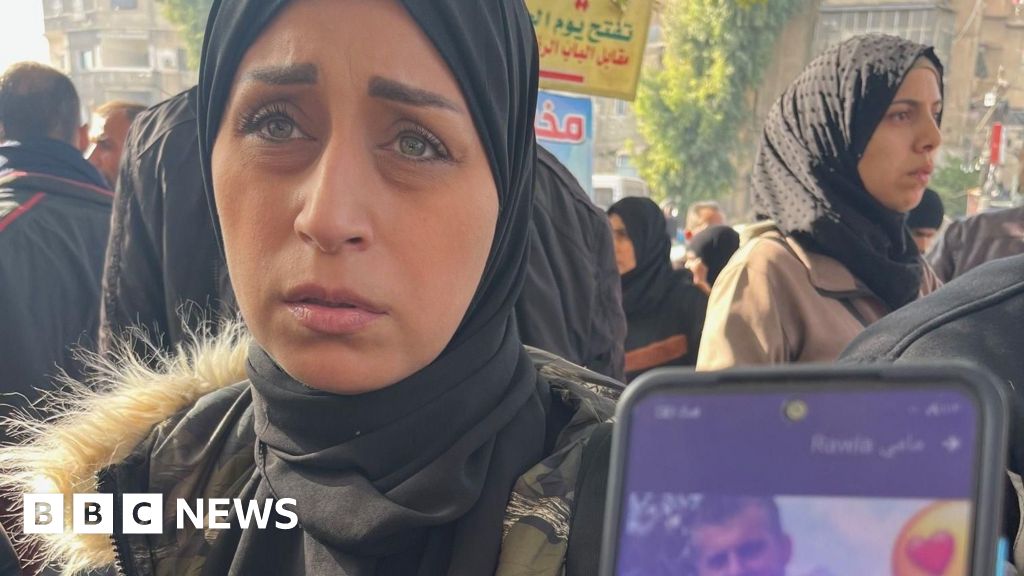
 BBC
BBCOn a painted wall outside Damascus’s Mustahed Hospital are photographs of the faces of dead men.
A constantly changing crowd of people examine them, squinting against the low winter sun at men who look as if they died in great pain. Noses, mouths and eye sockets are twisted, damaged and squashed.
Their bodies are in the hospital, brought to the city centre from another on the outskirts of Damascus. The medics say the dead were all prisoners.
A stream of wives, brothers, sisters and fathers come to the hospital looking for information. They’re hoping most of all to find a body to bury.
They get as close as possible to the photos looking hard for anything on the faces that they recognise. Some of them video each picture to take home for a second opinion.
It is a brutal job. A few of the men had been dead for weeks judging by the way faces have decomposed.
From the wall of photos, relatives go on to the mortuary.

Mustahed Hospital received 35 bodies, so many that the mortuary is full and the overflow room packed with trolleys loaded with body bags.
Inside the morgue, bodies were laid out on a bare concrete floor under a line of refrigerated trays.
Body bags had been opened as families peered inside and opened the refrigerators.
Some corpses were wrapped loosely in shrouds that had fallen away to expose faces, or tattoos or scars that could identify someone.
One of the dead men was wearing a diaper. Another had sticky tape across his chest, scrawled with a number. Even as they killed him, his jailors denied him the dignity of his own name.
All the bodies were emaciated. The doctors who examined them said they had signs of beating including severe bruising and multiple fractures.
Dr Raghad Attar, a forensic dentist, was checking dental records left by families to try to identify bodies. She spoke calmly about how she was assembling a bank of evidence that could be used for DNA tests, then broke down when I asked her how she was coping.
“You hear always that prisoners are lost for a long time, but seeing it is very painful.
“I came here yesterday. It was very difficult for me. We hope the future will be better but this is very hard. I am really sorry for these families. I am very sorry for them.”
Tears rolled down her face when I asked her if Syria could recover from 50 years of the Assads.
“I don’t know. I hope so. I have the feeling that good days are coming but I want to ask all countries to help us.”
“Anything to help us. Anything, anything…”
The families and friends coming in went silently from body to body, hoping to find some end to the pain that started when their loved ones were picked up at one of the regime’s checkpoints or in a raid on their homes and thrown into the Assad’s gulag.
A woman called Noor, holding a facemask over her mouth and nose, said her brother was taken in 2012, when he was 28.
All they had heard since was a mention in a Facebook post that he had been in the notorious Sednaya prison, where the regime left prisoners to rot for decades.
“It is painful,” said Noor. “At the same time, we have hope. Even if we find him between the bodies. Anything so long as he’s not missing. We want to find something of him. We want to know what happened to him. We need an end to this.”
One couple told a doctor their son was hauled away for refusing to open his laptop for inspection.
That was 12 years ago. He hasn’t been heard from since.
During the years I have reported from Syria I have heard many similar stories.
On my phone I have a photo of the haunted face of a woman I met in July 2018 at a camp for people displaced just after the rebel stronghold of Douma in the Damascus suburbs was forced to surrender.
Her son, a young teenager, disappeared after he was taken at a checkpoint by one of the intelligence agencies.
More than 50 years of the Assads means 50 years of disappearances, of incarceration, of killing.
It means pitiless cruelty to the prisoners, to the families trying to find them and to the Syrian people who were outside the Assad’s circle of trust.
At the photo wall and in the mortuary at Mustahed hospital they wanted to find what had happened, some information and if they were very lucky, a body.
They needed a reckoning and many wanted revenge. Most of all, they dreamed and hoped for a life without fear.
The Palace
A woman at the hospital said that even though she knew Bashar al- Assad was in Russia, the regime had drilled so much fear into her that she was still terrified of what it might do.
Maybe every Syrian who feels like her should go the crag overlooking Damascus where Hafez al-Assad, Bashar’s father, ordered the construction of a presidential palace, to check that that the monumental, marble edifice is empty.
Our driver gathered his own video evidence. He took out his phone to start filming when the car turned into the palace’s long ceremonial driveway.
During the years of the regime, ordinary Syrians made sure they did not slow down near the palace gates in case they were arrested and thrown into prison as a threat to the president.
Mobile phones stopped working as you approached the palace’s security bubble.
The palace looks down on Damascus, visible from most of the city. It told the people that the Assads were always present and always watching via the regime’s web of intelligence agencies.
The system was designed by Hafez, the first Assad president. His secret police spied on each other and spied on the people.
A businessman I knew in Homs told me once that one intelligence branch approached him when he was developing a hotel, asking for the designs early in the project so they could incorporate all the listening devices they needed into the rooms. They explained it was easier tham retrofitting them after the building was finished.
The Assad family never lived at the palace. It was for ceremonial occasions, and upstairs there were some workaday offices.
I went there a lot in 2015, to negotiate the terms of an interview with Bashar al- Assad. I had interviewed him twice before, some years before the uprising against him started in 2011.
That was when he was still tantalising Syrians with talk of reform, which turned out to be lies.
He was also encouraging western leaders to believe he might be separated from Iran and if not join the western camp exactly, then be persuaded that it was worth his while not to oppose it.
The US, Israel and the UAE were still trying to persuade him to dump Iran in the weeks before he was forced to flee to Moscow.
Now that Assad has gone, my target at the palace was an opulent villa in the grounds. I wanted to go there because it was where I met Assad for the interviews.
The villa, much more luxurious than the state rooms at the palace, was built, I was told, as a private residence for the Assad family.
Its floors and tables are marble, the wood is polished walnut and the chandeliers are crystal.
The Assads did not like it, so it was used as a guest house and for Bashar’s rare interviews.
I could see why they might have preferred their existing residence, a beautiful French colonial mansion that stands behind a screen of pine trees. It feels like an aristocrat’s retreat on the Riviera.
Until less than two weeks ago in the souk in old Damascus you could buy fridge magnets of Bashar al-Assad and his siblings as children, playing on bikes in a garden as their indulgent parents looked on.
Presumably the photo was taken on the villa’s spacious, immaculate lawns.

The extended Assad family treated Syria as their own personal possession, enriching themselves and buying trust with their followers at the expense of Syrians who could be thrown into jail or killed if they stepped out of line, or even if they didn’t.
A fighter called Ahmed, who had taken up arms against the regime in 2011, survived the rebel defeat in Damascus, and fought his way back from Idlib with the rebels of Hayat Tahrir al Sham was inspecting the way the Assads lived with his three brothers, all rebel fighters.
“People were living in hell and he was in his palace,” Ahmed said calmly.
“He didn’t care about what they were going through. He made them live in fear, hunger and humiliation. Even after we entered Damascus people would only whisper to us, because they were still afraid.”
I found the marble guesthouse, and walked through the walnut-panelled, marble-floored library where I had interviewed Assad when the regime was fighting for survival in February 2015.
The highlight of the interview were his denials that his forces were killing civilians. He even tried to joke about it.
Now, rebel fighters were on the door and patrolling the corridors. Some of the books had fallen off the library shelves, but the building was intact.
I walked across to an ante room where Assad would grant 10 or 15 minutes of private conversation before the interview.
He was unfailingly polite, even solicitous, enquiring about my family, and the journey to Syria.
Bashar al-Assad’s slightly awkward demeanour made some western observers believe he was a lightweight who might bend to pressure.
In private I found him self-confident to the point of arrogance, convinced he was the all-knowing spider at the heart of the Middle East web, tracking his enemies’ malign intentions and ready to strike.
His father Hafez al-Assad was a kingpin of the Middle East. He was a ruthless man who built the police state that lasted for over fifty years, using fear, guile and a willingness to destroy any threat to impose stability on Syria, a country that had been a byword for violent changes of government until he seized sole power in 1970.
I had the impression that Bashar wanted to be his father’s son, perhaps even to outdo him.
He killed many more Syrians than Hafez and broke the country to try to save the regime.
But Bashar’s stubbornness, refusal to reform or negotiate and his willingness to kill sealed his fate and condemned him to a last terrified drive to the airport with his wife and children on their last flight out of Syria to Moscow.
The Reckoning
In a scruffy, bustling neighbourhood not far from the grace and beauty of the old city of Damascus, I had a front row seat as some of the pressures facing Syria and its new rulers surged through an excited crowd.
They had heard that the man who until less than a week ago was the local boss, the mafia-style godfather of their suburb was going to be executed.
The man, known as Abu Muntaja, was one of the military intelligence officers considered responsible for the Tadamon massacre in 2013 of at least 41 local men.
The crowd grew until thousands blocked the streets, delighted that a notorious regime killer was going to be executed in in front of them in the main square that he used to swagger across.
The atmosphere throbbed with excitement, expectation and anger.
Justice meant watching their enemy die, not just because of his crimes, but because of the boundless cruelty of the Assad regime.
An elderly women called Muna Sakar, dressed in a neat coat and hat, was there to see him die as a thief as well as a killer.
“He stole my house and money. Of course I want to see him dead. I would have done it myself with my own hands. But I couldn’t find a way. I wanted to kill him.”
When rumours flew around that the execution was starting, the crowd surged back and forth, jostling for the best position, phones held high in outstretched arms for the video.
No one wanted to miss a thing. When they decided the execution was happening down the street, they stampeded over fences and cars stuck in traffic to get there.
In the end there was no execution, at least not yet. It was probably a rumour, that thousands wanted to be true.
If Syria’s new rulers do not want change to be measured in blood, they will need to control the desire for revenge.
When the weight of dictatorship is lifted, powerful forces are unleashed.
How Syria’s new rulers deal with them will shape what comes next.
NewsBeat
Harry v The tabloids. What next, if anything?
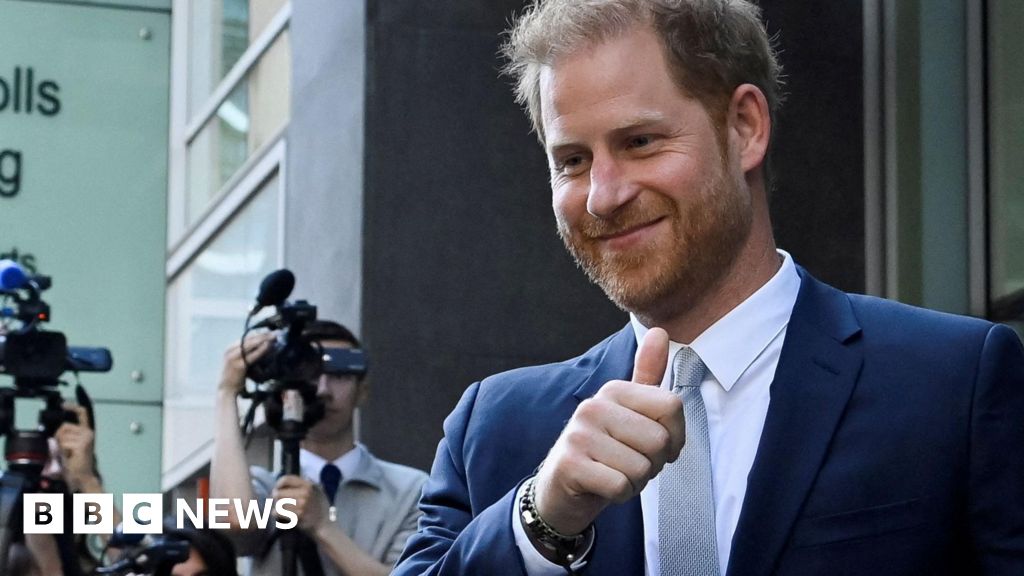
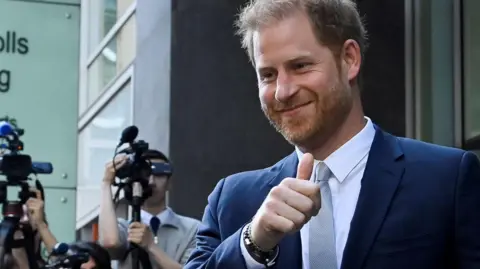 Reuters
ReutersDid the hero Prince slay the tabloid dragon? Or to quote one of its most memorable headlines, was it The Sun Wot Won It?
The dust is still settling on the settlement of Prince Harry’s epic legal battle against News Group Newspapers.
Had the trial gone ahead, Prince Harry would have alleged he had been the victim of unlawful newsgathering by NGN journalists between 1996 and 2011 – and that its leaders covered up wrongdoing by destroying evidence – something that the company denied. But the eight-week trial didn’t happen because the two sides suddenly settled.
He’s scored an apology for intrusion by The Sun, including NGN accepting that there was unlawful information gathering by private investigators working for the newspaper.
NGN has not admitted unlawful activity by journalists or editors – and the settlement means a judge won’t now have to decide if there was, as the Duke’s team alleges, a corporate cover-up of wrongdoing – a claim NGN vehemently denied and said it would fight at trial.
The space between those positions, in which both sides will feel they won something, is now the battleground.
The question is how far, realistically, can a campaign around historical events go? Is this week a reboot of investigations or, in fact, the final chapter?
The main focus of pressure and lobbying will be the police – because campaigners believe Scotland Yard didn’t go far enough in its previous investigations, missing opportunities to widen its focus beyond wrongdoing at The News of the World.
‘Dossier’ being prepared
Speaking to the BBC on Friday, actor Hugh Grant – who said the financial risks forced him to settle, with The Sun’s owners last year – said the police’s job was not done “by any means” – and suing the newspapers was never going to get at the full truth.
So all eyes will be on Lord Tom Watson, the former Labour deputy leader, who NGN admits was placed under surveillance by News of the World journalists in 2009.
The last remaining claimant alongside Prince Harry, he says a dossier will go to the Metropolitan Police.
The Met for its part says there is no active criminal investigation into alleged newspaper wrongdoing.
That statement also means there’s no current probe into the separate Mirror Group titles, despite a judge ruling in 2023 that they had used phone hacking to get information on Prince Harry.
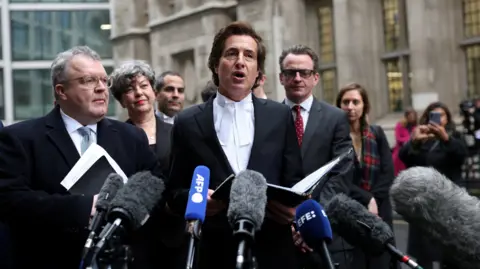 Reuters
ReutersSo why no investigation?
The police aren’t ruling one out, but Sir Mark Rowley, the Met’s commissioner, told LBC radio on Friday that they would need to see something “radically new”.
And that’s because Scotland Yard takes the view that it carried out a huge investigation 10 years ago.
Team Harry believe this is profoundly myopic. While some of their planned evidence for the NGN trial had come from the police, his lawyers also obtained new documents from NGN itself under rules for a fair trial.
Could that be new evidence? Let’s take the example of the records of the myriad of payments to private investigators.
Team Harry and Watson would have sought to prove at a trial that many were for unlawful activity. On one level you can see that would arguably fit a test of something radically new.
But, in its defence, News Group would have argued that none of this proved journalists or anyone else at the Sun knew information was being unlawfully gathered – far short of a whiff of a criminal enterprise.
What this single episode we had been expecting to see at the trial shows is how each allegation against NGN would have been fought rather than conceded. And if the police knock on the company’s door with its truncheon, they are likely to face a similarly robust response.
And that’s why the thrust of Lord Watson’s promised dossier to the police will become important. It will have to say something really big. And in the absence of a court finding – that challenge becomes larger still.
Other bodies could in theory act. Parliament’s Culture, Media and Sport Select Committee investigated phone-hacking allegations in 2011. It’s likely to face calls to review the evidence of NGN CEO Rebekah Brooks and others – evidence that NGN will stand by because there’s been no finding in court of unlawful activity by journalists, editors or executives.
There’s also the Information Commissioner’s Office. It had a role in the origins of this story, investigating privacy and data breaches by private investigators. The ICO says it has no plans to reopen or review this investigation.
The government has already ruled out launching “Leveson 2”, the second leg of the public inquiry promised by David Cameron. It was meant to investigate “unlawful or improper conduct” across tabloids and whether the police, put simply, had turned a blind eye to it because they had been corrupted by getting too close to journalists who may have been paying them off. But it never happened.
Labour in government won’t revisit it because too much time has passed.
Politics
Nigel Farage says he’s ready to be next PM and vows to save ‘miserable’ Britain as Reform UK snatch lead in shock poll: ‘You bet your life!’
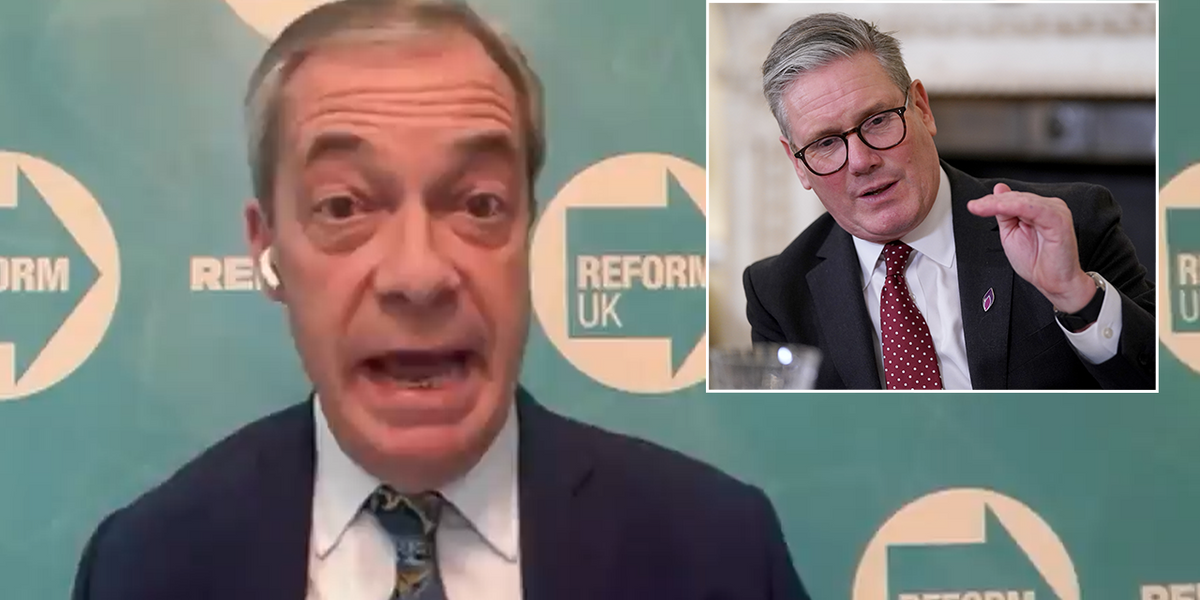
Reform UK leader Nigel Farage says he is ready to become the next Prime Minister of Great Britain after a new poll put his party ahead of Labour and the Conservatives.
Speaking on GB News, Nigel said the country is engulfed by a ‘miserable’ atmosphere, a stark contrast to what we are seeing across the pond.
This is a breaking story, more to follow.
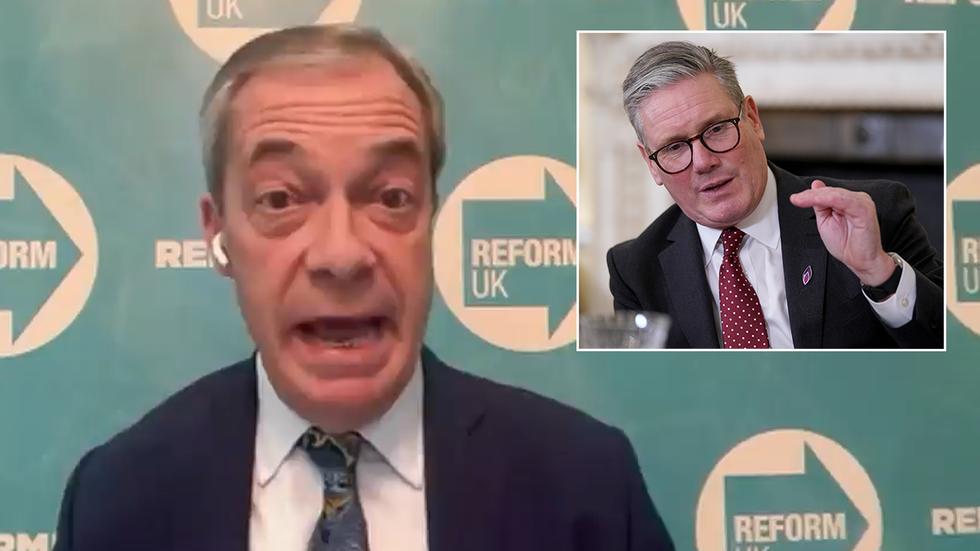
Farage says the British public has lost faith in the ‘uniparty’
GB NEWS / PA
Politics
MPs Push for More Time to Debate Voting Reform
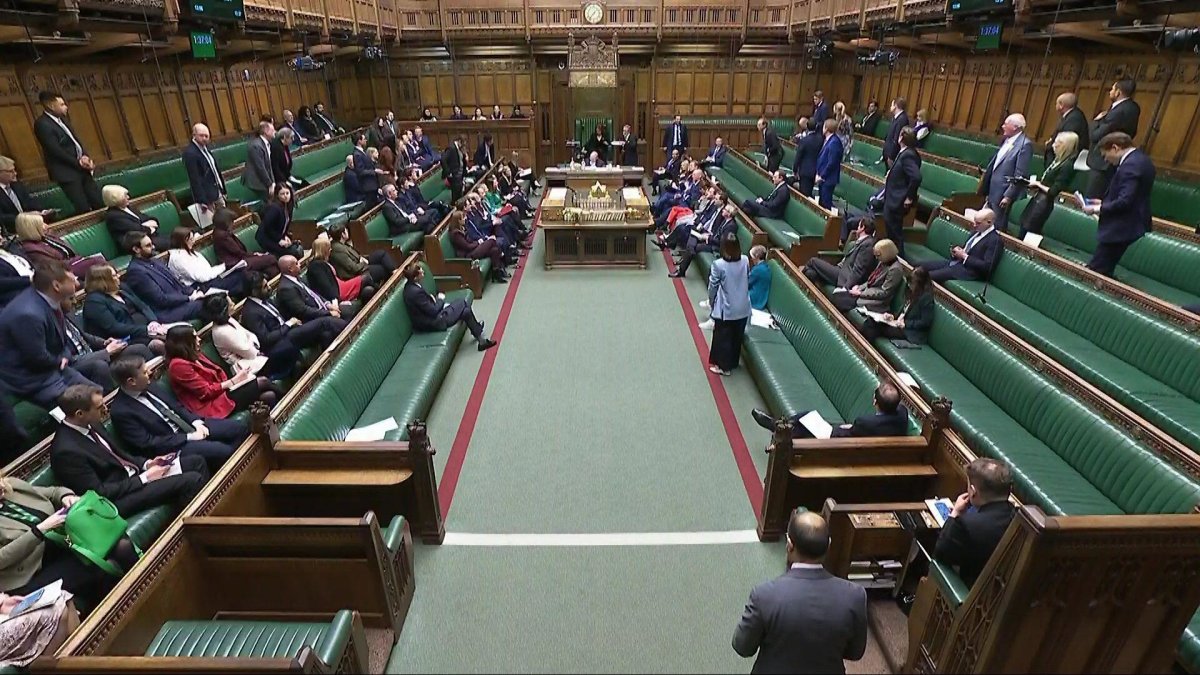

(Alamy)
3 min read
The Lib Dems have urged the Government to provide them with more time to debate Parliamentary reform as momentum builds to change the UK’s voting system.
The Elections (Proportional Representation) Bill won a vote in the House of Commons during its first reading in December by 138 votes to 136. It narrowly passed with the support of 59 Labour MPs.
It was the first time MPs had endorsed replacing the current First-Past-The-Post (FPTP) for Proportional Representation (PR).
A minority of private members’ bills become law, because they are put forward by backbenchers and not the Government. They face competition from other MPs’ private members bills and may never receive a second reading.
Sarah Olney, Lib Dem MP for Richmond Park, said the Labour Government should “finally listen to the public” and give the Bill the time it needs to be scrutinised and debated in the chamber.
“Winning a vote in Parliament on proportional representation was a victory for democracy and for members of the public everywhere. They deserve their rightful say and for their vote to count,” she said.
“It’s long been clear that First Past the Post is not fit for purpose. The 2024 election was the most disproportionate in history, with a government winning two-thirds of the seats on one-third of the vote.
“The Labour Government needs to finally listen to the public, and give my Bill the time and support it needs to progress through Parliament and into law. Anything less would be an insult to everyone whose vote was effectively wasted at the last General Election.”
Keir Starmer is open to electoral reform having promised to give 16-year-olds the vote at the next election in his party’s manifesto in 2024.
The Prime Minister came under renewed pressure from his own party in November when Labour MPs joined a parliamentary group calling for the UK to move to a proportional voting system.
Many Labour MPs and activists are sympathetic to electoral reform, after a motion to commit the party to proportional representation passed at its 2022 conference.
However, the Prime Minister’s team have ruled out any action or commitment for the first term of a Labour government.
The UK held a referendum in 2011 on whether Westminster elections should use Alternative Voting (AV), where voters rank candidates in order of preference.
The ‘No’ to AV campaign won more than two-thirds of the vote with a turnout of 42 per cent.
Research from YouGov has found voters 48 per cent of respondents are in favour of adopting proportional representation, compared to 24 per cent who oppose it and 29 per cent who are unsure.
At the last election Labour won the second largest majority in political history after it secured 412 seats with 33.8 per cent of the vote.
If the voting system was based on PR, instead of FPTP, Labour would have only won 228 seats.
The Conservatives would have gained 139 seats while Reform would have won 100, the Lib Dems 73 and the Greens 71.
The Government was approached for comment.
PoliticsHome Newsletters
PoliticsHome provides the most comprehensive coverage of UK politics anywhere on the web, offering high quality original reporting and analysis: Subscribe
NewsBeat
Ange Postecoglou: Tottenham injuries to blame for poor form
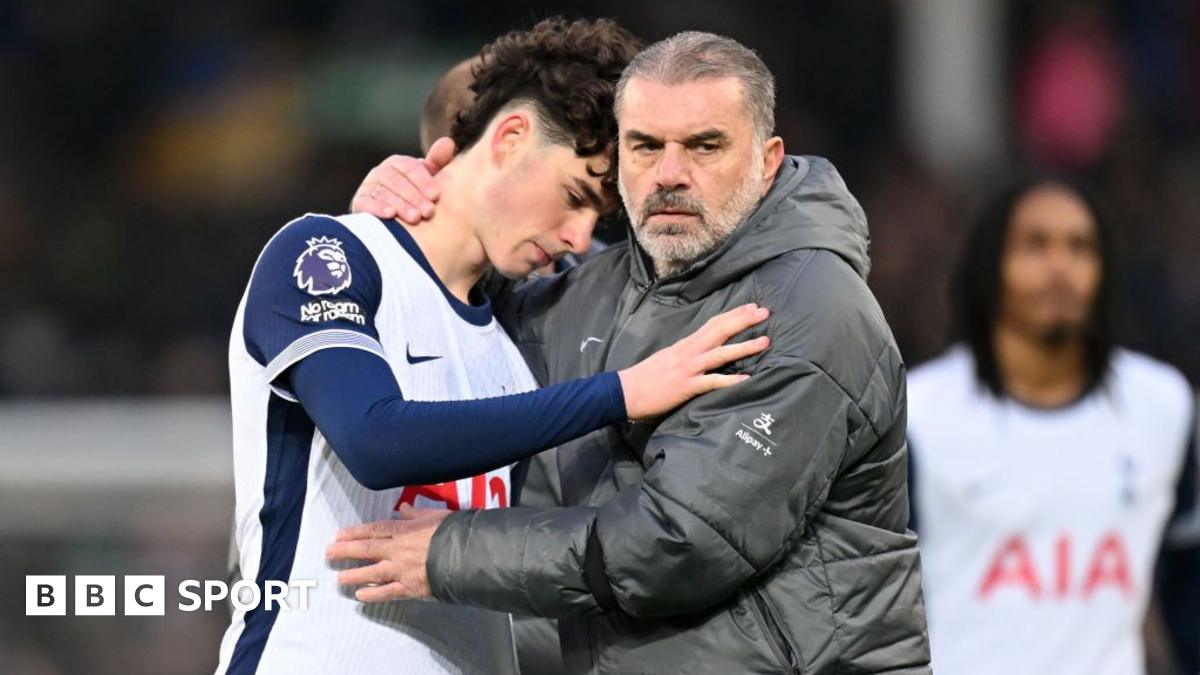
Tottenham head coach Ange Postecoglou says the club are in a stronger position than when he took charge 18 months ago, despite their poor form this season.
Spurs have won just one of their past 10 Premier League matches, which has seen the club drop to 15th in the table.
Injuries have blighted Spurs’ campaign, with key players such as Micky van de Ven, Cristian Romero and Destiny Udogie missing large chunks of the season.
The Australian’s training methods and style of play have come under question given the number of muscle injuries sustained at the club this term.
Asked why his second season in charge had been more difficult, Postecoglou said: “It’s just injuries.
“I mean you can walk outside and say, ‘Jeez it’s really bright’, and say to yourself maybe it’s not the sun. But it is the sun, mate, we’ve just got injuries.
“Every decision that is made is from me.
“I am responsible for this. If you want a head on a stick, take mine, but I am absolutely 100% confident that we are in a better place as a football club today than when I started.”
NewsBeat
Cardiff: Watchdog probes police chase before fatal crash | UK News
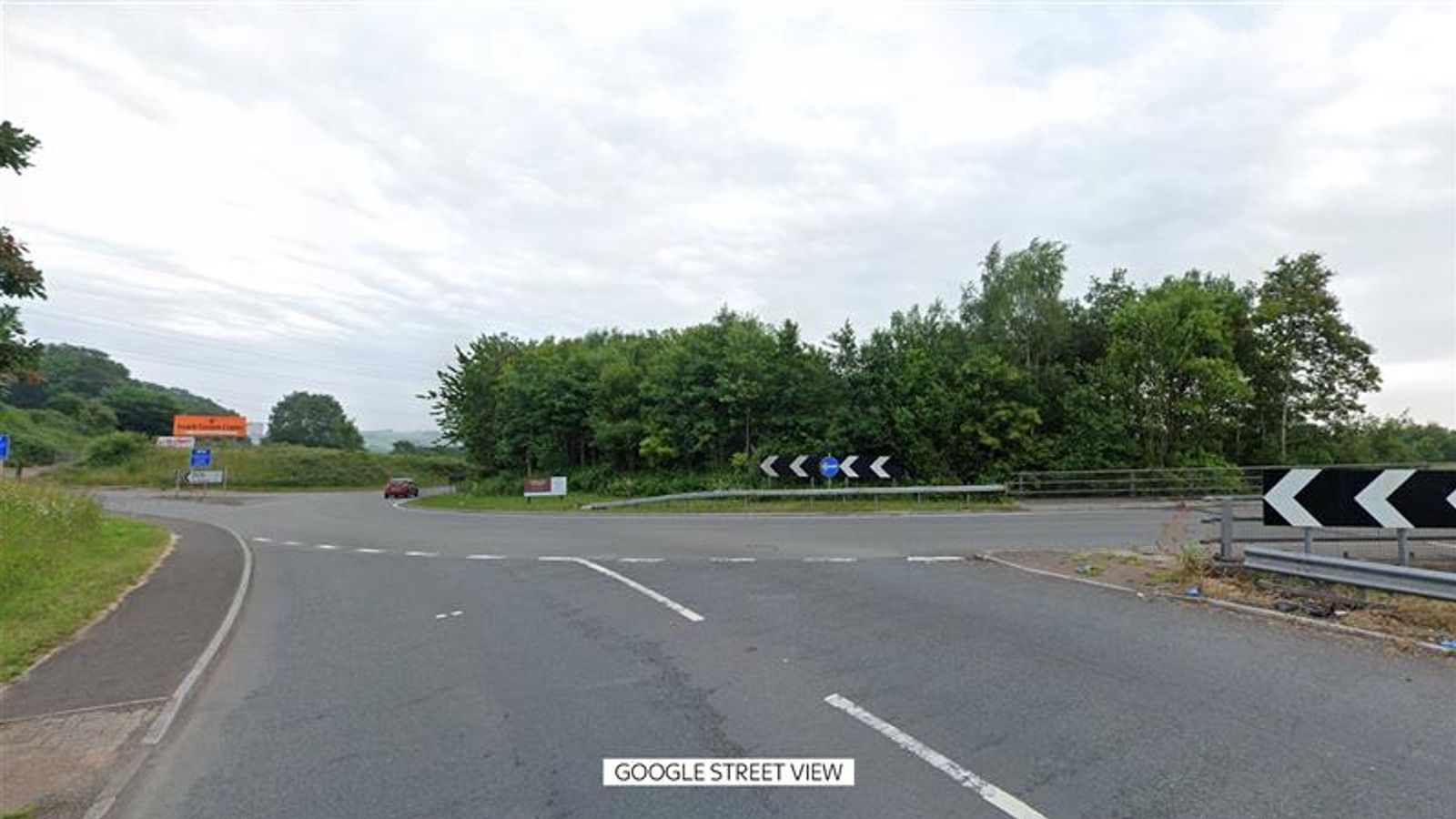

The police watchdog has started an investigation into a police chase, which began minutes before a fatal crash.
The collision happened in the early hours of Thursday 9 January 2025 on the Junction 30 eastbound exit slip road of the M4 in Cardiff.
The Independent Office for Police Conduct (IOPC) has now launched an independent investigation into the involvement of South Wales Police.
Modecai Juma, 51, had previously failed to stop for officers, and a police pursuit began at 3.24am, the IOPC said in a statement.
The watchdog said it was notified by the force as officers had been pursuing Mr Juma’s Honda Accord at the time of the incident.
Mr Juma was travelling eastbound on the M4 and the crash happened at 3.30am after he took the exit lane towards Cardiff Gate.
He received medical assistance by officers but Mr Juma died at the scene just after 4am.
The IOPC’s initial investigation has established that the driver of the Honda Accord was reported for failing to stop for police at 1.42am, and police had concerns about the way in which the car was being driven.
Shortly after 3am, officers were alerted to the vehicle again and a police pursuit was authorised.
The IOPC’s deputy director of investigations, Catherine Bates, said the watchdog’s thoughts were with Mr Juma’s family and it would “continue to update them” as its enquiries progressed.
“While our investigation is in the early stages, investigators have already conducted CCTV enquiries and have obtained initial accounts from the officers involved,” she added.
Read more from Sky News:
Grandson of pie company tycoon jailed for friend’s murder
Mum jailed after four sons died in house fire
A spokesperson for South Wales Police said the force “made a referral to the Independent Office for Police Conduct as is normal procedure following such incidents”.
In a statement at the time of the collision, a spokesperson said the driver’s family would receive support from specialist family liaison officers.
A post-mortem has been carried out and an inquest was opened and adjourned at Pontypridd Coroner’s Court on Friday.
NewsBeat
Man arrested on suspicion of murder after 75-year-old stabbed to death in Putney in London
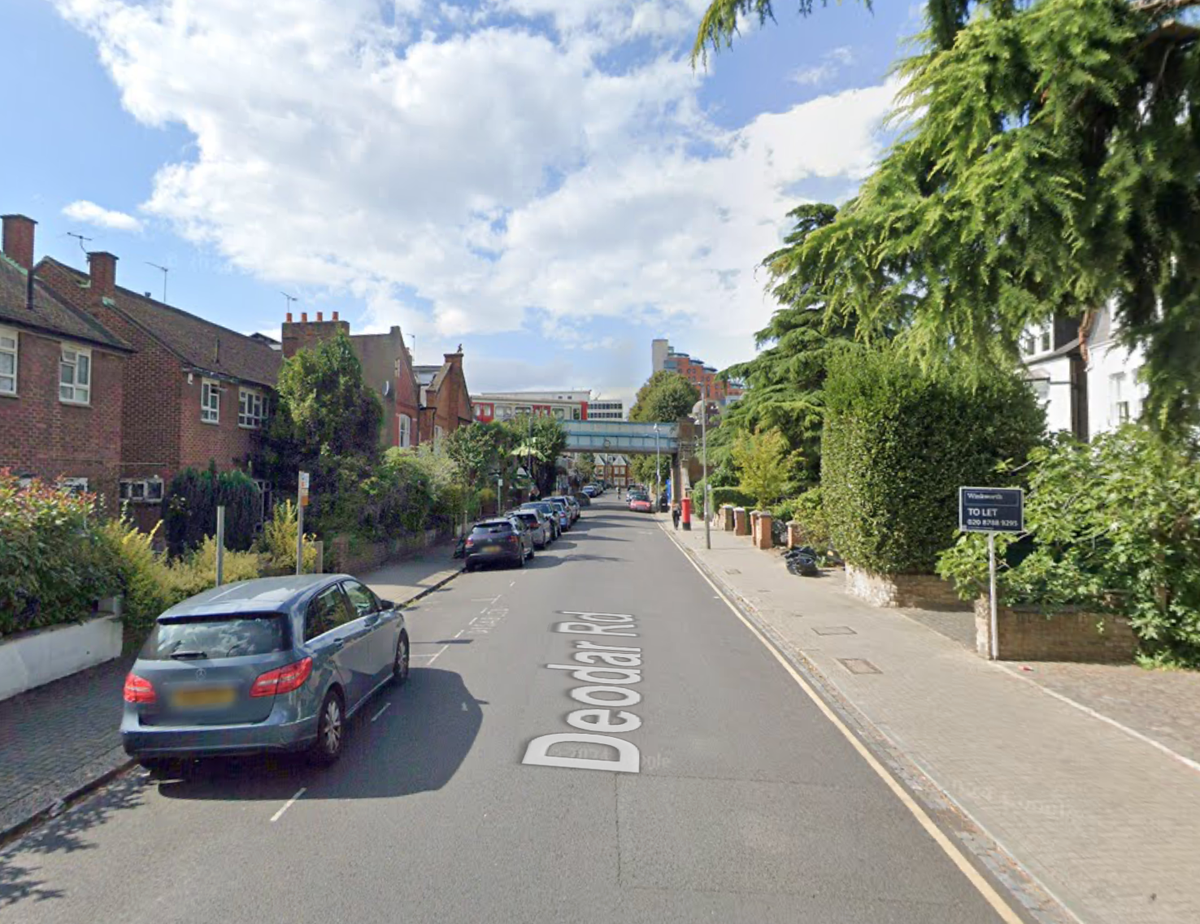
A man has been arrested on suspicion of murder after a 75-year-old man died with stab wounds in Putney, south west London.
The 30-year-old, believed to be known to the victim, was arrested after the elderly man was pronounced dead on Deodar Road at around 3am on Friday.
His next of kin have been made aware although police currently await formal identification. They are currently being supported by specialist officers, the Met Police said.
Detective Superintendent Amanda Mawhinney said: “We are currently supporting the family of a man who was sadly killed in the early hours of this morning.
“I am aware that people in the community may feel shocked following this – we believe this to be an isolated incident and there is no wider threat to the public.
“Although we have made significant progress by making an arrest, I would like to make it clear that our investigation does not stop here.
“We need the local community to help us understand what happened in the early hours of this morning. We are appealing for anyone who was in the area at around 3am and that saw or heard anything unusual to contact us as soon as possible.
“You may notice a higher police presence within the area today whilst we carry out our enquiries. A scene is in place as well as road closures.
“If you feel the need to raise anything with our officers, then please feel free to speak with them whilst they are in the area.”
Anyone with information which could assist with the investigation is asked to call 101 stating CAD721/24JAN.
Alternatively you can contact the independent charity Crimestoppers anonymously on 0800 555 111 or by submitting an online form.
This is a breaking news story. More to follow…
NewsBeat
Judge rejects US mother’s extradition challenge
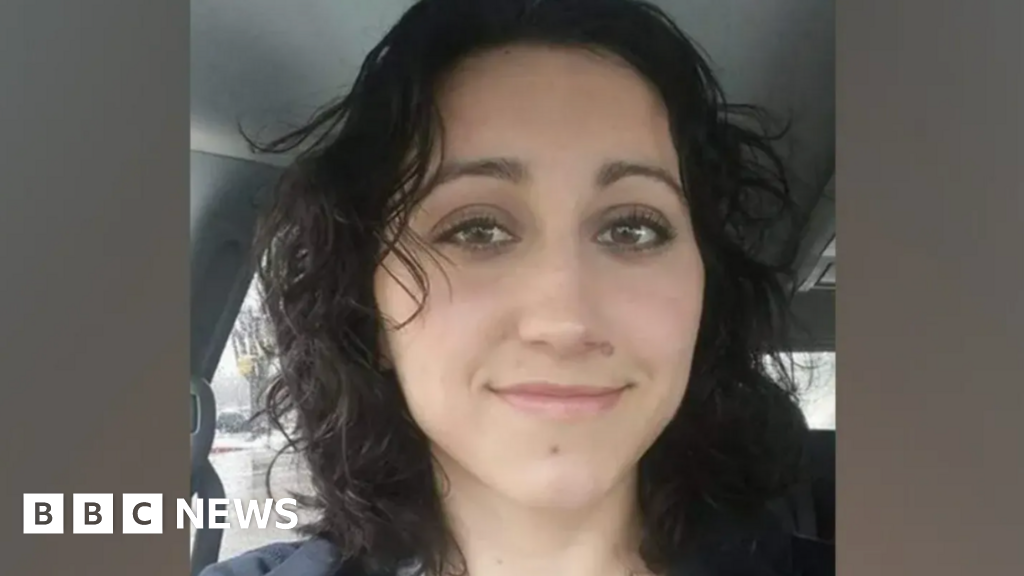
BBC News
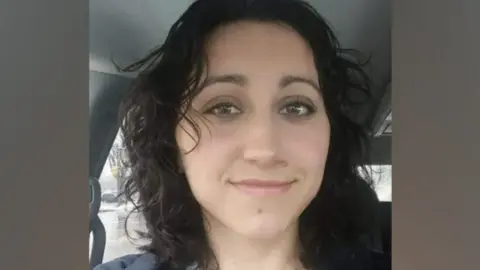 Dabb, Kory R.
Dabb, Kory R.A judge has rejected a US mother’s challenge to extradition over accusations she murdered two of her children in Colorado and “fled” to London.
Kimberlee Singler’s nine-year-old daughter Elianna and seven-year-old son Aden were found dead on 19 December, 2023 in Colorado Springs.
Prosecutors acting on behalf of US officials said Ms Singler, 36, “fled” the US and was arrested in west London 11 days later.
District Judge John Zani told Westminster Magistrates’ Court he rejected Ms Singler’s challenge against extradition and said the case now passed to the home secretary to decide whether the 36-year-old should be sent back to the US.
Warning: This report contains descriptions of violence against children
In his ruling Judge Zani said he was not convinced that the defendant’s rights, particularly her concerns about prison conditions and a possible life sentence without parole, would be infringed on by extradition.
“I am of the firm opinion that the defendant’s extradition to the United States of America to face criminal prosecution complies with all of her Convention Rights within the meaning of the Human Rights Act 1998,” Judge Zani said.
Ms Singler’s legal team has said she intends to appeal against the judge’s decision.
Previously, the court heard in September that Ms Singler’s alleged crimes were “committed against the backdrop of acrimonious court proceedings” relating to the custody of her children with her ex-husband Kevin Wentz.
Prosecutor Joel Smith said on 19 December 2023 the Colorado Springs Police Department responded to a 911 call reporting a burglary at a Colorado residence at 00:29 local time (06:29 GMT).
When officers arrived at the defendant’s address, they found two dead children and a “blood-stained handgun” which was discovered on the floor of the bedroom.
Mr Smith said DNA tests were carried out on the gun and a knife which revealed the presence of mixed profiles matching the children and Ms Singler.
A third child, who has not been named, was found with a serious injury to her neck. She was taken to hospital and survived.
Mr Smith said Ms Singler blamed her husband for the attack, but it was found he had been driving a “GPS-tracked truck” in Denver, giving what the prosecutor described as a “complete and verifiable alibi”.
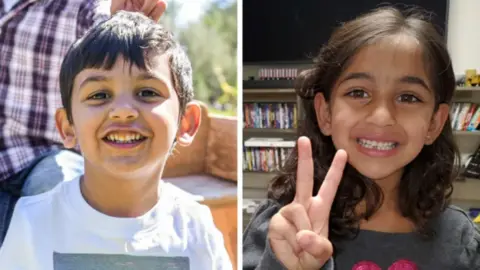
In the days that followed, the third child was moved into foster care and, on Christmas Day, she told her foster carer that Ms Singler had been responsible for the attack and had asked her to lie to police, Mr Smith said.
The prosecutor said the girl was interviewed by police on 26 December, during which time she recounted how the attack had unfolded after the defendant guided all three children into their bedroom.
The police investigation then led to a warrant being issued by Fourth Judicial District Court in El Paso County, Colorado, for Ms Singler’s arrest.
Mr Smith said Ms Singler was arrested in the Chelsea area of west London on 30 December.
It is not for the court in London to carry out a criminal trial.
However, in his ruling published on Friday Judge Zani said: “I note that the defendant, through counsel, has clearly stated that her defence to the charges is a total denial of liability.”
Politics
Reform UK pulls ahead of both Labour and Tories as Nigel Farage dominates in new poll
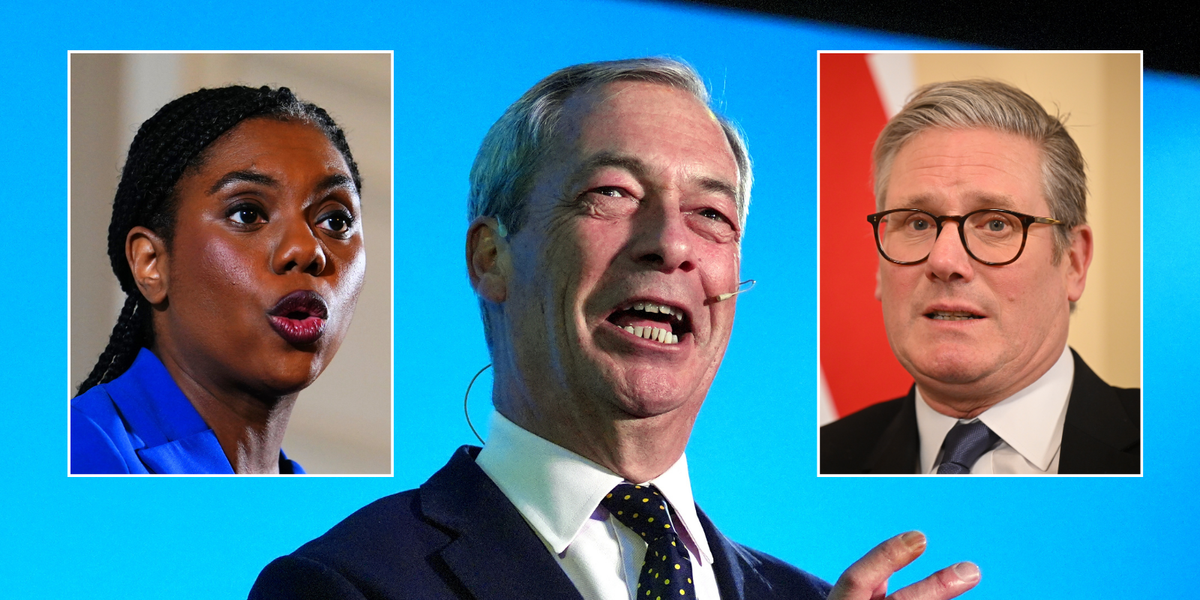
Reform UK has pulled ahead of both Labour and the Conservatives to top a national poll alone for the first time ever.
Fresh data from pollsters at Find Out Now has placed Nigel Farage’s party three points clear of the Tories – while Labour has slipped to a distant third.
Some 26 per cent of Britons would now vote for Reform if a General Election were called tomorrow, the data says – with 23 per cent opting for Kemi Badenoch’s Conservatives, and 22 for Labour.
In a defiant statement quashing calls for a pact between Reform UK and the Tories, the former’s chairman Zia Yusuf said on social media: “No pacts, no deals. Reform is headed for Government.”
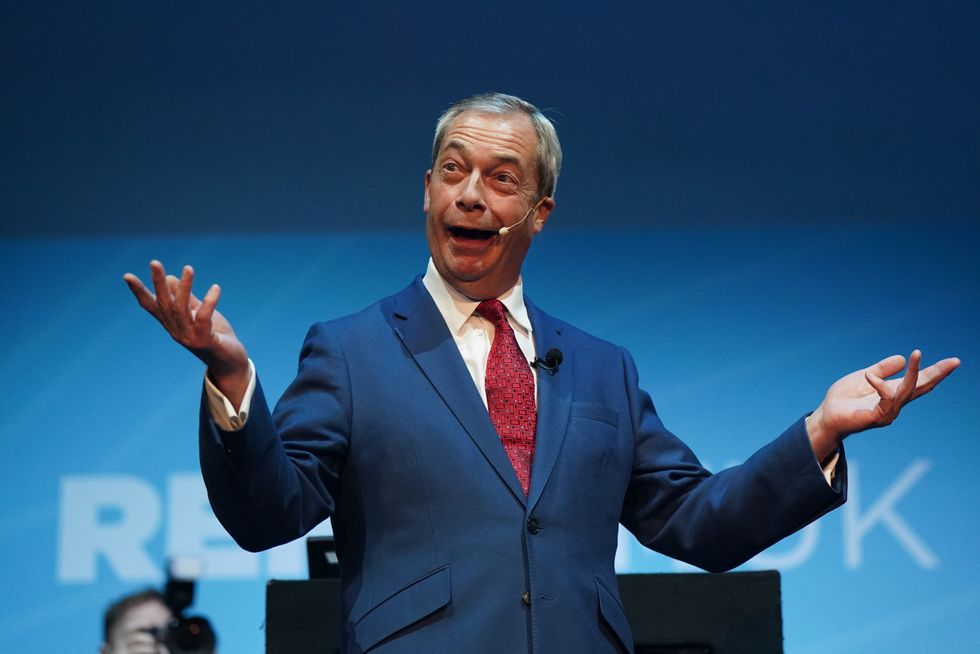
Some 26 per cent of Britons would now vote for Reform if a General Election were called tomorrow
PA
While leader Nigel Farage said: “Reform LEADS for the first time in a national opinion poll. This is just the beginning.”
And Reform’s Great Yarmouth MP Rupert Lowe added: “Reform now in the clear, leading a national opinion poll.
“I am more confident than ever that we will outright win the next general election – it is going to happen. It cannot come soon enough.”
But the Tories have poured cold water on the figures – a spokesman for Kemi Badenoch told GB News: “Polls go up and down and change every week.
LATEST ON REFORM UK:
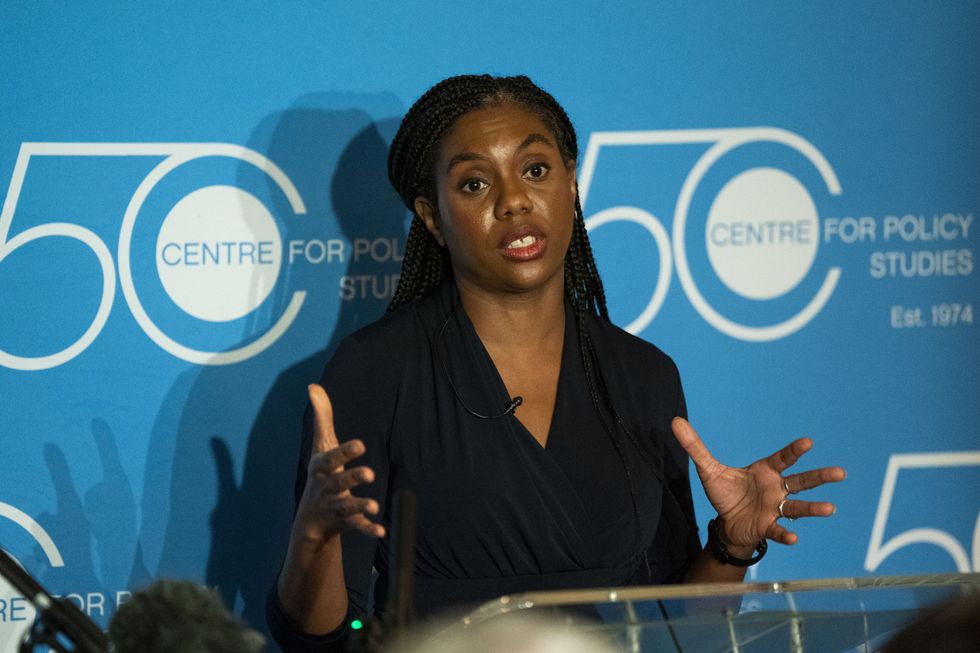
Kemi Badenoch’s Tories have poured cold water on the figures
PA
“We’re focused on what matters – the damage Labour is doing to the economy, our schools and our international standing.”
And Labour has accused the two right-wing parties of “fighting among themselves”.
A Labour source said: “The Labour Government is getting on with delivering the Plan for Change. We’ve been clear from the outset that means taking the tough decisions needed to undo 14 years of Tory chaos and decline.
“While the opposition fight among themselves, the Labour Government is putting in the hard yards to deliver much-needed growth, create more jobs, make people better off by putting more money in people’s pockets, rebuild Britain and get our NHS back on its feet.”
It comes just weeks after Find Out Now placed Reform UK neck-and-neck with Labour – the first time Nigel Farage’s party had topped a national poll.
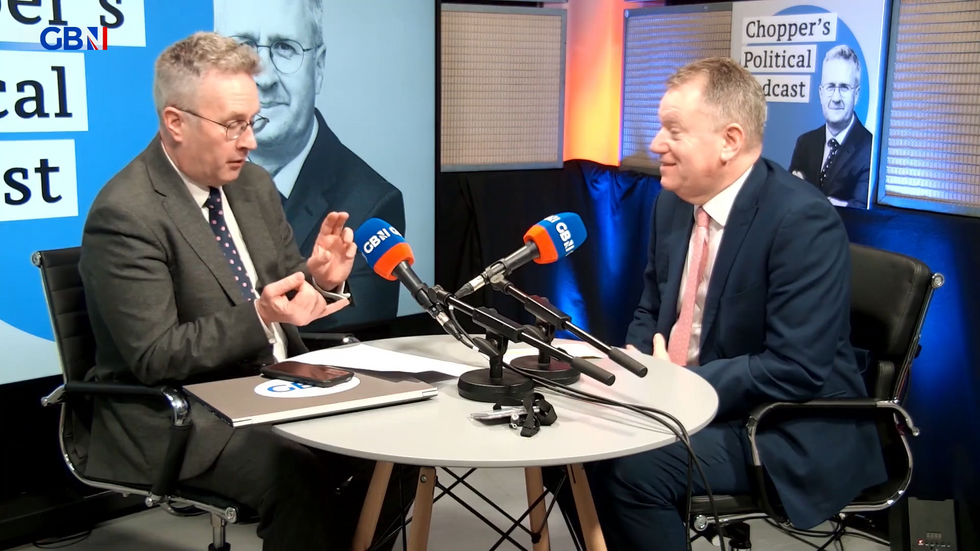
Before the new polling emerged, Tory peer Lord Frost had warned that his party would have to come to some sort of arrangement with Reform
GB NEWS
Back then, Refom and Labour jointly led with a 25 per cent vote share each, with the Conservatives left with 20 per cent.
But after a fortnight of gloomy headlines for the Labour Government, voters appear to be turning away.
Reform UK has gained one percentage point, the Tories three, and the Liberal Democrats one – all while Labour has sunk by three per cent.
Before the new polling emerged, Tory peer Lord Frost had warned that his party would have to come to some sort of arrangement with Reform if neither can come out on top.
And he looks to be vindicated by the data – running the Find Out Now results through an Electoral Calculus projection would see Reform take 170 seats, the Tories 165 and Labour 179, raising the prospect of a Reform-Tory coalition Government.
NewsBeat
Man who racially abused striker banned from football matches

A man has been banned from attending football matches for three years after he racially abused Dutch striker Justin Kluivert.
NewsBeat
National Portrait Gallery faces backlash over ‘nepotism’ claims in star-studded Zoë Law exhibition
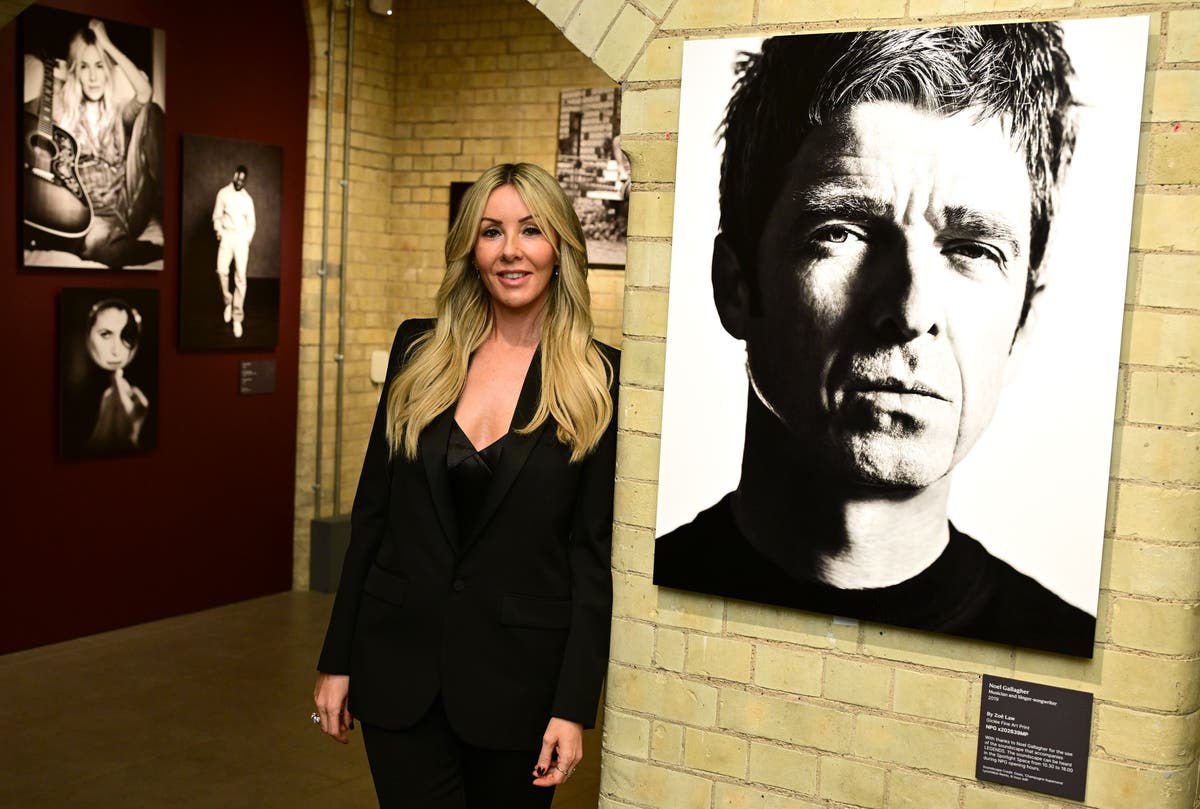
For more than 50 years, the National Portrait Gallery has been a showcase of British cultural heritage, celebrating the icons and trailblazers who’ve shaped art, politics, and entertainment.
But its latest exhibition, Zoë Law: Legends, has raised eyebrows, with accusations of nepotism overshadowing its artistic ambitions.
The free display, which opened in November 2024, features black-and-white portraits of well-known figures, including Noel Gallagher, Sir Rod Stewart, Sir Bobby Charlton, and Kim Cattrall. Gallagher’s portrait even comes with a specially created soundscape by the man himself. Running until 2 March 2025, some of the works will join the gallery’s permanent collection.
However, controversy has grown over the photographer’s links to a major donor. Zoë Law is connected to the Law Family Charitable Foundation, which gave significant funding to the gallery’s £41 million refurbishment in 2023.
A former celebrity make-up artist turned photographer, Law served as a trustee of the foundation until June 2024, stepping down amid her divorce from hedge fund manager Andrew Law, who continues to run the foundation.

Ms Law’s connections extend beyond the arts world. In 2015, she chaired the Conservative Party’s Black and White Ball, a glitzy fundraiser for some of Britain’s wealthiest donors. And sitting on the NPG’s board are Chris Grayling, the former justice secretary, and David Ross, a multimillionaire donor and friend of Boris Johnson.
The optics have left some feeling uneasy. Museum as Muck, a network supporting working-class creatives, described the situation as “disheartening,” adding: “Government funding for cultural institutions should remain independent from the influence of wealthy benefactors. Relying on additional funds from the affluent can skew the priorities of these institutions, granting undue influence to a select few.”
Photographer Harry Borden, an honorary fellow of the Royal Photographic Society, said the exhibition left him scratching his head. “It’s concerning when someone seemingly emerges out of the blue with a major exhibition, and when you Google them, nothing comes up. Nine years ago, she was a Tory fundraiser and make-up artist. I’m all for reinvention, but it strikes me as odd,” he said on his YouTube channel.
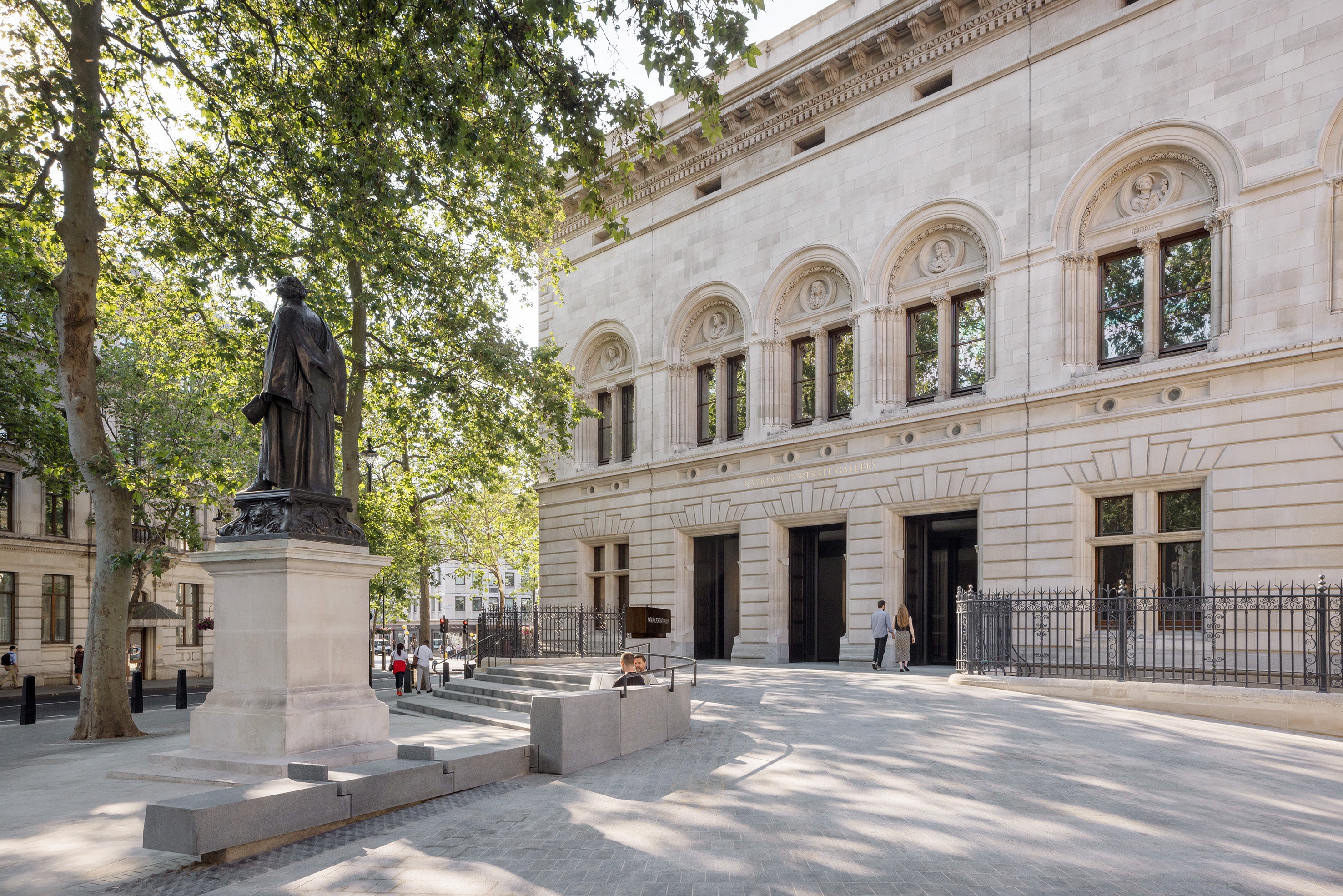
Turner Prize-winning artist Jesse Darling was even more blunt: “It just makes plain what was always the case, no? Art is a rich man’s game made up of rich hobbyists who keep their money circulating among themselves.”
The exhibition features portraits of people Ms Law describes as “dear friends,” including Orlando Bloom, Sir Bobby Charlton, and Kim Cattrall.

Speaking about his inclusion, Gallagher quipped: “I am thrilled and honoured to have my portrait added to the National Portrait Gallery’s permanent collection. The thought of the portrait of a grumpy middle-aged man, who frankly hates having his picture taken, being permanently displayed for future generations to marvel at is very special. Thanks and praise.”
The National Portrait Gallery defended its decision to showcase Ms Law’s work. A spokesperson told The Independent the gallery had followed its Grants and Donations policy, which includes approval by its ethics committee. “The Gallery’s Ethics Committee were consulted and agreed the donation from the Law Family Charitable Foundation, and were aware of the display,” they said.
The gallery added that Legends by Zoë Law is just one of the free displays designed to complement its larger programme of exhibitions.
-

 Fashion8 years ago
Fashion8 years agoThese ’90s fashion trends are making a comeback in 2025
-

 Entertainment8 years ago
Entertainment8 years agoThe Season 9 ‘ Game of Thrones’ is here.
-

 Fashion8 years ago
Fashion8 years ago9 spring/summer 2025 fashion trends to know for next season
-

 Entertainment8 years ago
Entertainment8 years agoThe old and New Edition cast comes together to perform You’re Not My Kind of Girl.
-

 Sports8 years ago
Sports8 years agoEthical Hacker: “I’ll Show You Why Google Has Just Shut Down Their Quantum Chip”
-
Business8 years ago
Uber and Lyft are finally available in all of New York State
-
Entertainment8 years ago
Disney’s live-action Aladdin finally finds its stars
-
Sports8 years ago
Steph Curry finally got the contract he deserves from the Warriors
-
Entertainment8 years ago
Mod turns ‘Counter-Strike’ into a ‘Tekken’ clone with fighting chickens
-
Fashion8 years ago
Your comprehensive guide to this fall’s biggest trends








You must be logged in to post a comment Login